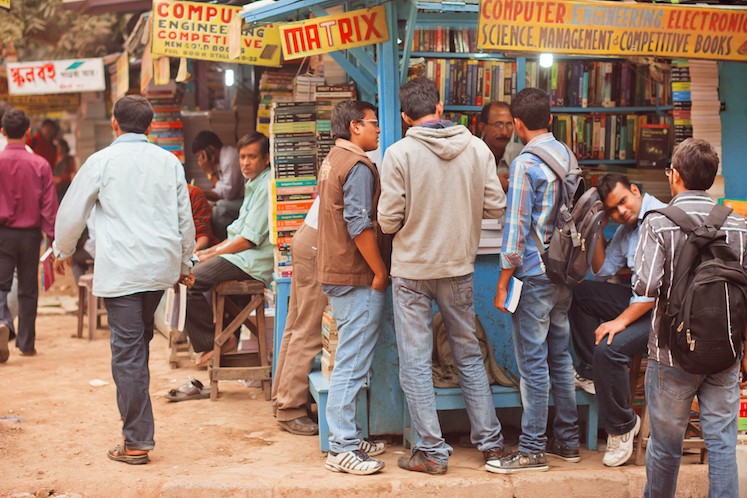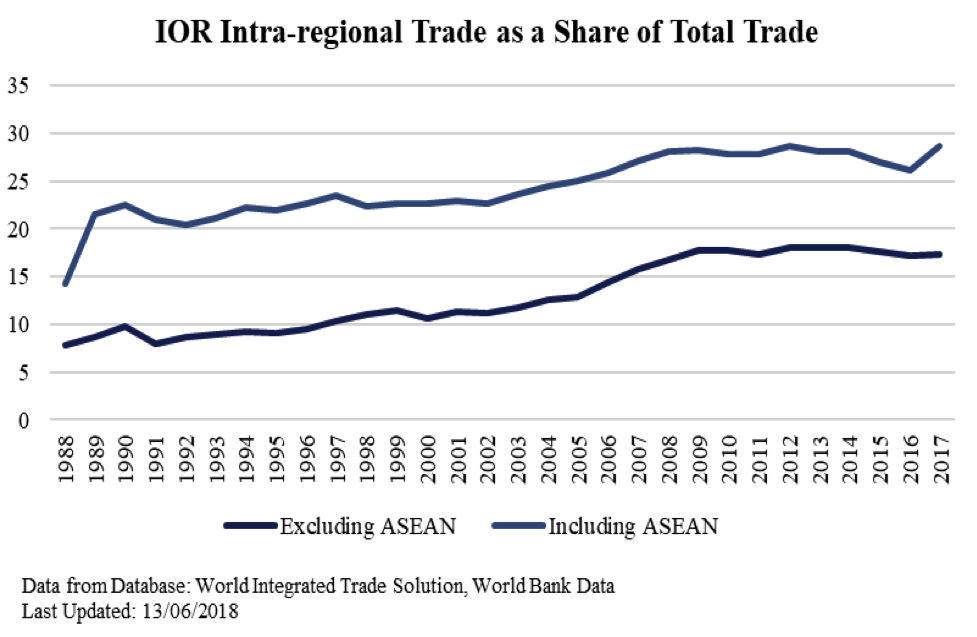July 16, 2018 Reading Time: 6 minutes
 Reading Time: 6 min read
Reading Time: 6 min readImage Credit: Radiokafka / Depositphotos
Aniskha De Zylva*
Sri Lanka has dealt with radicalisation throughout its post-independence history, and in the past has relied on regional and global engagement to tackle that radicalisation. However, Sri Lanka needs do more to ensure that its counter-radicalisation efforts remain dynamic and comprehensive. Recent riots against the minority Muslim community in Sri Lanka underscore this need.
Sri Lanka has diverse and untapped opportunities to play a larger role in tackling radicalisation, both regionally and globally. It could begin by promoting the Indian Ocean Rim Association (IORA) as a regional platform for tackling radicalisation in the Indian Ocean region (IOR)—a region of interest to Sri Lanka given its hub aspirations.
The 2017 Global Terrorism Index1 indicates that a majority of Indian Ocean states have been impacted by terrorism—arguably an outcome of radicalisation—in some way. This is concerning from an economic standpoint as well, since some of the world’s most important maritime trade and communication routes pass through the IOR. The region includes 36 states,2 (see Figure 1) which are home to 2.7 billion3 people (37% of the global population) and have a combined GDP of USD 10 trillion4 (12.5% of global GDP). The IOR is, therefore, a potentially important source of demand for Sri Lanka’s exports.
Figure 1
Despite the political, economic and geographic significance of the region, efforts to tackle radicalisation have thus far been ad hoc. To change that, Sri Lanka could encourage the Indian Ocean Rim Association (IORA) to take the lead in forging a concerted effort to tackle radicalisation in the IOR.
In addition to combating terrorism in the region, Sri Lanka could present three key reasons that support the idea of IORA taking the lead in tackling radicalisation in the IOR.
First, IORA is a relatively non-threatening platform for India-China cooperation, in a region fraught with geopolitical tension between the two powers— which is affecting the smaller IOR states like Sri Lanka. Of the 36 IOR states, 21 are members of IORA, including India. While China is not an Indian Ocean state, it is a dialogue member of IORA. The issue of radicalisation is a convergence point for India and China, since they both face national issues linked to radicalisation that challenge their regional ambitions.
Second, global youth unemployment (15-24 years) is increasing (see Figure 2), and in many IOR states that share is above 10%.5 South Africa has the highest percentage of unemployed youth (57% in 2017), while Sri Lanka’s share is 21% (2017).
Figure 2
This global trend is undesirable. The available evidence suggests that economically frustrated and unemployed youth are more susceptible to radical ideologies6 that could lead to violence.
Third, intra-regional trade is significant and growing. As a share of total world trade, trade between IOR countries was 28%7 in 2017 (see Figure 3). Terrorism due to radicalisation is a potential risk to this trade; by for example, disrupting transport links and deterring foreign investment. Terrorist attacks in Yemen on a US Navy destroyer in 2000 and a French oil tanker in 2002 damaged the country’s shipping industry8 as ships bypassed Yemen. Therefore, there is an important economic rationale for addressing radicalisation in the IOR.
Figure 3

To begin a concerted effort aimed at tackling radicalisation in IOR, Sri Lanka could propose IORA to take the lead by: (1) strengthening its declaration on tackling radicalisation; (2) stimulating minilateralism (targeted agreements between a small number of like-minded states) for tackling radicalisation; (3) establishing a network for practitioners; and (4) engaging youth.
There are several steps IORA could take to advance its ‘Declaration on Preventing and Countering Terrorism and Violent Extremism.’9 Given the contested definition of radicalisation, member states could begin by developing a shared understanding of radicalisation, similar to that of the European Union (EU).10 This could be followed with a shared set of values that the organisation could disseminate to counter radical ideologies, as practised by the Commonwealth.11 Thereafter, states could develop a counter-radicalisation strategy as a blueprint for implementing commitments under the declaration; the UN Global Counter-Terrorism Strategy12 is a good example.
IORA members could also minilaterally address radicalisation. Indeed, some members have already begun pursuing this approach to counter radicalisation and terrorism in Southeast Asia. For example, Indonesia proposed creating a “mini-Interpol”13 involving six countries (Indonesia, Thailand, Malaysia, Brunei Darussalam, Singapore and the Philippines), to share intelligence through the “Our Eyes” initiative. Under Our Eyes, each participating country would create a unit for sharing intelligence between them and each country representative would be expected to maintain regular communications about the collection of information. Other similar initiatives are possible, since IORA comprises various groupings from small island African states to the Bay of Bengal states.
The IORA could establish a network for practitioners that allows them to share best practices in counter-radicalisation, de-radicalisation and rehabilitation. For example, the EU has a network for practitioners called the Radicalisation Awareness Network (RAN). The RAN connects practitioners through thematic working groups14 like ‘Communication and Narratives’ and ‘Education,’ and has a repository15 of member states’ strategies for preventing radicalisation that leads to violence. The diversity of the IOR would make this network a valuable initiative. Member states could leverage the experiences of different countries in the region, like Singapore, South Africa and Sri Lanka.
High youth unemployment in the region makes youth engagement pivotal in stemming radicalisation. Youth leadership programmes could focus on strategies for recognising and countering radicalisation. In 2017, the Commonwealth delivered a masterclass16 for 22 young activists from the Caribbean to strengthen youth-led initiatives to counter extremist propaganda. Paid internships would also be attractive to young people, since they have become a prerequisite to jobs in a number of high-productivity sectors and are an opportunity for experimenting. The IORA Secretariat offers internships17 and this could be expanded to a programme that is similar to the EU’s “Erasmus+ Programme.”18 Such a programme could promote a shared sense of entrepreneurship and volunteerism among youth in the IOR.
There needs to be a concerted effort to tackle radicalisation in the Indian Ocean region. Sri Lanka could encourage IORA to take the lead on this, and should view tackling radicalisation through IORA as an opportunity to build collaborative arrangements with regional neighbors and other key partner countries. It would also be an opportunity for Sri Lanka to bolster its soft power and highlight its capacity to recognise and address the challenges facing other states, despite being a smaller state in the IOR.
1Global Terrorism Index. (2017). Institute for Economics and Peace. Available at: http://visionofhumanity.org/app/uploads/2017/11/Global-Terrorism-Index-2017.pdf#page=13.
2Michel, D., and Sticklor, R. (2012). Indian Ocean Rising: Maritime and Security Policy Challenges. Stimson. Available at: https://www.stimson.org/sites/default/files/file-attachments/Book_IOR_2_1.pdf#page=11.
3The World Bank Group. (2018). World Bank Open Data. Available at: https://data.worldbank.org/.
4Ibid.
5Ibid.
6Bhatia, K., and Ghanem, H. (2017). How Do Education and Unemployment Affect Support for Violent Extremism? Evidence from Eight Arab Countries. The Brookings Institution. Available at: https://www.brookings.edu/wp-content/uploads/2017/03/global_20170322_violent-extremism.pdf#page=11.
7The World Bank Group. (2018). World Integrated Trade Solution. Available at: https://wits.worldbank.org/.
8Bandyopadhyay, S., Sandler, T., and Younas, J. (2015). The Toll of Terrorism. The International Monetary Fund. Available at: http://www.imf.org/external/pubs/ft/fandd/2015/06/bandyopa.htm.
9Indian Ocean Rim Association Declaration on Preventing and Countering Terrorism and Violent Extremism. (2017). Australian Government Department of Foreign Affairs and Trade. Available at: http://dfat.gov.au/about-us/publications/Documents/iora-declaration-preventing-countering-terrorism-violent-extremism.pdf.
10Radicalisation Awareness Network Centre of Excellence. (2016). Introducing the European Union’s Radicalisation Awareness Network (RAN). Available at: https://www.youtube.com/watch?v=Z8Vy7wxQ-ik&feature=youtu.be.
11The Commonwealth Secretariat. (2017). Commonwealth Secretariat Strategic Plan 2017/18-2020/21. Available at: http://thecommonwealth.org/sites/default/files/inline/CommonwealthSecretariatStrategic_Plan_17_21.pdf#page=10.
12United Nations Office of Counter-Terrorism. (2018). UN Global Counter-Terrorism Strategy. Available at: https://www.un.org/counterterrorism/ctitf/en/un-global-counter-terrorism-strategy.
13The Straits Times. (2017). Indonesia Proposes ‘Mini-Interpol’ Plan to Boost ASEAN Counter-Terrorism Efforts. Available at: https://www.straitstimes.com/asia/se-asia/indonesia-proposes-mini-interpol-plan-to-boost-asean-counter-terrorism-efforts.
14The European Commission. (2018). RAN Working Groups. Available at: https://ec.europa.eu/home-affairs/what-we-do/networks/radicalisation_awareness_network/about-ran_en.
15The European Commission. (2018). Prevent Strategies of Member States. Available at: https://ec.europa.eu/home-affairs/what-we-do/networks/radicalisation_awareness_network/ran-and-member-states/repository.
16The Commonwealth Secretariat. (2017). The Commonwealth Brings Together Young Caribbean Activists to Counter Extremism. Available at: http://thecommonwealth.org/media/news/commonwealth-brings-together-young-caribbean-activists-counter-extremism.
17The IORA Secretariat. (2018). Career and Internship. Available at: http://www.iora.net/en/secretariat/career-internship.
18The European Commission. (2018). What is Erasmus+?. Available at: https://ec.europa.eu/programmes/erasmus-plus/about_en.
*Anishka De Zylva is a Research Associate at the Lakshman Kadirgamar Institute of International Relations and Strategic Studies (LKI). The opinions expressed in this article are the author’s own and not the institutional views of LKI, and do not necessarily reflect the position of any other institution or individual with which the author is affiliated.